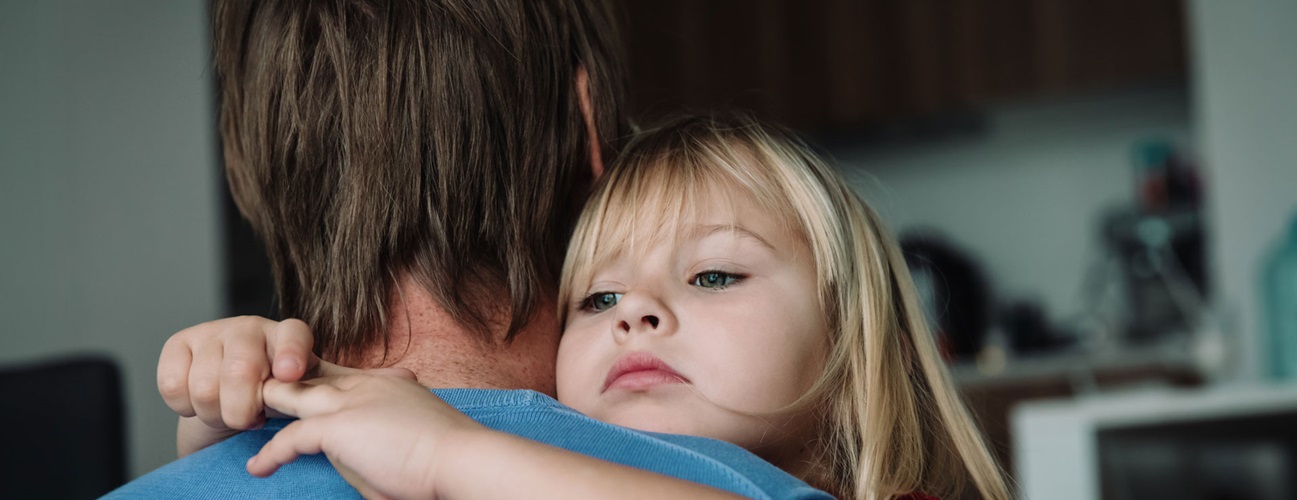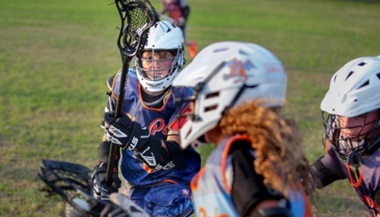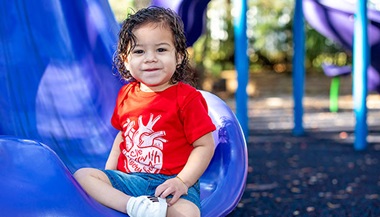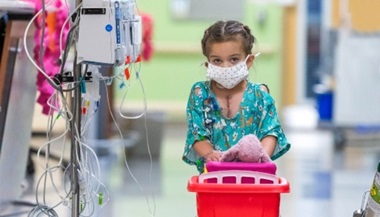Chest Pain in Children: Is It a Heart Condition?
Featured Expert:
Chest pain tends to be associated with heart attack or other acute heart conditions in adults. But what about chest pain in children? Parents should know that childhood chest pain is actually a fairly common complaint and it’s rarely an indication of a heart condition.
"Only about 1% to 4% of chest pain in children will be cardiac. The vast majority—95% or more—isn’t related to a heart issue,” explains William Ravekes, M.D., Medical Director of Pediatric Heart Transplant at Johns Hopkins Children’s Center.
Causes of Chest Pain in Children
Some of the most common causes of chest pain in children include:
- Acid reflux (heartburn)
- Anxiety
- Asthma
- Costochondritis (inflammation of joints between ribs and breastbone)
- Muscle strain
- Respiratory infection
What Should I Do About My Child’s Chest Pain?
As a parent, you want to know when you should talk to a doctor about your child’s chest pain and when the chest pain could be a medical emergency.
Seeking Emergency Care for Chest Pain in Children
Ravekes recommends going to the emergency department or calling 911 if your child’s chest pain:
- Gets worse over the course of a few hours
- Happens during exercise or physical activity
- Is accompanied by breathing problems
- Is followed by fainting
It’s also important to know your family’s health history. If congenital heart conditions run in your family, or family members have died suddenly at a young age, monitor your child’s heart health closely.
Mild Chest Pain in Children
Mild chest pain that comes and goes usually isn’t cause for alarm, but may warrant a conversation with your child’s doctor. “Start with your pediatrician,” says Ravekes. “They’ll evaluate the possibility of cardiac and non-cardiac chest pain causes."
Your child’s pediatrician may refer them to a pediatric cardiologist if they find:
- A heart murmur (abnormal sounds of blood flow between heartbeats)
- Abnormal vital signs, including heart rate, blood pressure, breathing or temperature
- An arrhythmia (abnormal heartbeat)
- Irregularities on an electrocardiogram (ECG), a noninvasive test that measures the electrical activity of the heart
Diagnosing Chest Pain in Children: How does a pediatric cardiologist evaluate my child?
“The first thing I do as a pediatric cardiologist is get a good, careful history. We spend a lot of time talking about when the chest pain happens and the quality of the chest pain, as well as its locations and duration,” explains Ravekes. He encourages children to describe the chest pain as accurately as possible, including:
- What triggers the chest pain?
- Does it happen during activity or rest?
- Is it a sharp, stabbing chest pain or is it dull?
- Is it always in one spot or does it move around?
- Is it accompanied by other symptoms?
The doctor will gather information from parents that could help determine the underlying cause of chest pain. It’s important to evaluate physical and psychological signs to get a full picture of your child’s health. The doctor may ask about your child’s energy and anxiety levels, or if they noticed any changes in skin color during episodes of chest pain.
After a thorough physical, the doctor will typically perform diagnostic tests. “Any kid that comes to a cardiologist will get an ECG. That looks at heart rhythm and signs of ongoing or prior heart muscle damage,” says Ravekes. Other diagnostic tests may include:
- Echocardiogram, (an ultrasound of the heart), which looks for structural defects
- Chest X-ray to look for a chest wall fracture or abnormalities in the shape or size of the heart
- Holter monitor, which uses electrodes to track the heart’s rhythm for 24 to 48 hours
- Exercise stress test to see how the heart works during physical activity
Heart Conditions That Cause Chest Pain in Children
While it’s rare for a heart condition to be the cause of chest pain in children, it does happen. Heart conditions that can cause chest pain include:
- Congenital cardiomyopathies, which describe an enlarged heart muscle (hypertrophic) or a heart muscle that is too thin (dilated) and are usually present at birth
- Coronary artery anomalies, which are usually congenital issues
- Myocarditis, or infection of the heart muscle
- Pericarditis, or infection of tissue around the heart
Treatment for these heart conditions depends entirely on the condition and its severity. There are a range of treatment options available, from medication and monitoring to open-heart surgery.
How Can I Help Monitor My Child’s Chest Pain?
There are a variety of ways that parents can help monitor their child’s chest pain. Most importantly, encourage your child to be honest about their symptoms. Tips include:
- Ask your child to report specific details about chest pain, including the severity of the pain on a scale of 1 to 10.
- Check your child’s pulse regularly. If it’s over 180, notify your child’s cardiologist right away.
- Encourage your child to tell you about stressors at home, at school or among friends that could be contributing to health issues like chest pain.
Ravekes tells his pediatric patients, “Whenever you see any doctor, there is no right or wrong answer to what you’re feeling. Just be open and honest. We want to get you back on your sports team, dance team or whatever activities you like to do. We can make things better. It’s very rare that we can’t do anything. Either surgery will fix it, or we have medicines to make you happier and healthier.”







